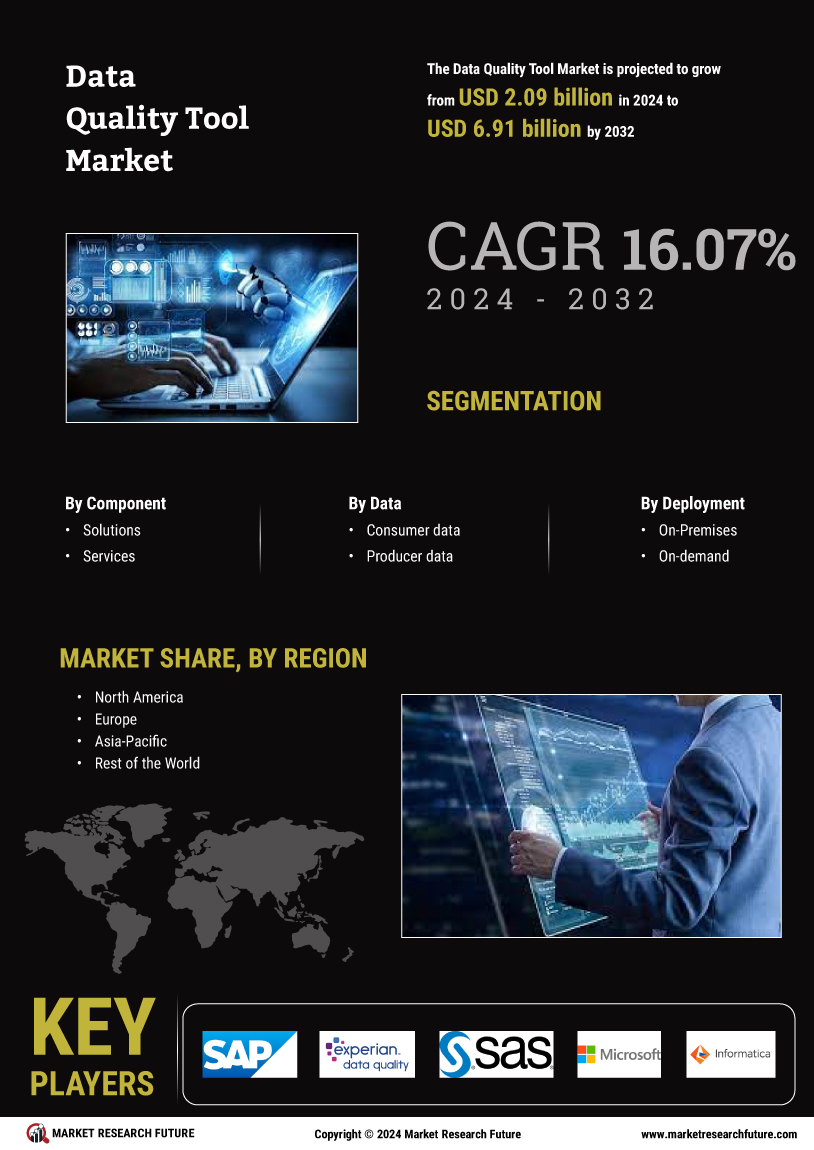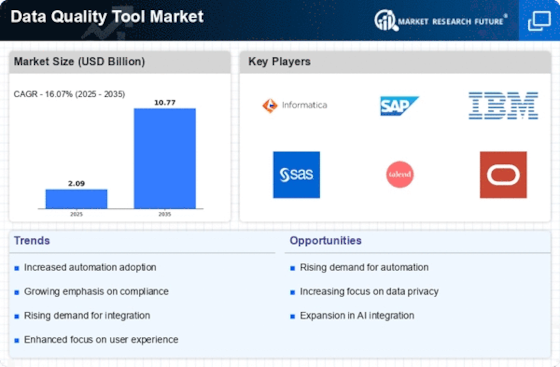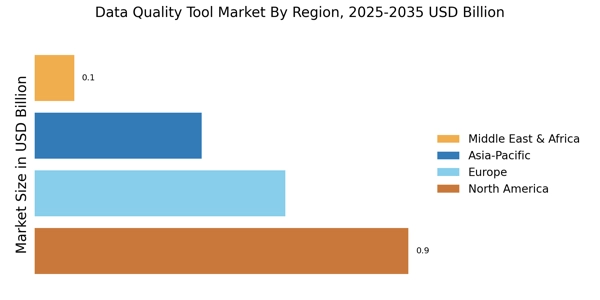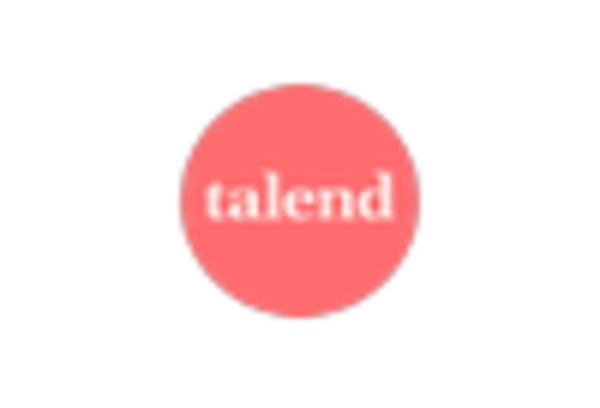Rising Data Compliance Regulations
The Data Quality Tool Market is experiencing a surge in demand due to the increasing number of data compliance regulations. Organizations are compelled to adhere to standards such as GDPR and CCPA, which necessitate robust data quality measures. As a result, companies are investing in data quality tools to ensure compliance and avoid hefty fines. The market is projected to grow at a compound annual growth rate (CAGR) of approximately 20% over the next five years, driven by the need for organizations to maintain data integrity and security. This trend indicates that businesses are prioritizing data quality as a critical component of their compliance strategies, thereby propelling the Data Quality Tool Market forward.
Escalating Volume of Data Generation
The exponential increase in data generation across various sectors is a key driver for the Data Quality Tool Market. With the advent of IoT devices, social media, and digital transactions, organizations are inundated with vast amounts of data. This surge necessitates the implementation of effective data quality tools to manage and maintain data accuracy. It is estimated that by 2025, the total amount of data created will reach 175 zettabytes, underscoring the urgent need for robust data quality solutions. As organizations strive to harness this data for competitive advantage, the Data Quality Tool Market is poised for substantial growth, driven by the demand for tools that ensure data reliability and usability.
Integration of Advanced Technologies
The integration of advanced technologies such as artificial intelligence and machine learning is reshaping the Data Quality Tool Market. These technologies enable organizations to automate data cleansing and validation processes, significantly enhancing the efficiency of data management. As businesses increasingly adopt these technologies, the demand for sophisticated data quality tools is expected to rise. The market is anticipated to witness a growth rate of around 18% annually as organizations seek to leverage AI-driven insights for better data quality. This trend suggests that the Data Quality Tool Market is evolving to meet the needs of modern enterprises that require agile and intelligent data solutions.
Increased Investment in Data Analytics
The Data Quality Tool Market is benefiting from increased investment in data analytics across various industries. Organizations are recognizing the value of data analytics in driving business growth and enhancing customer experiences. As a result, there is a growing emphasis on ensuring data quality to maximize the effectiveness of analytics initiatives. Recent reports indicate that companies are expected to allocate over 30% of their IT budgets to data analytics tools and solutions, which includes data quality tools. This trend highlights the critical role that data quality plays in the success of analytics projects, thereby fueling the growth of the Data Quality Tool Market.
Growing Importance of Data-Driven Decision Making
In the current business landscape, the Data Quality Tool Market is significantly influenced by the growing importance of data-driven decision making. Organizations are increasingly relying on accurate and high-quality data to inform their strategic choices. This reliance on data analytics has led to a heightened awareness of the need for effective data quality tools. According to recent studies, companies that prioritize data quality are 5 times more likely to make faster decisions than their competitors. Consequently, the demand for data quality tools is expected to rise as businesses seek to enhance their analytical capabilities and improve operational efficiency, thus driving growth in the Data Quality Tool Market.


















